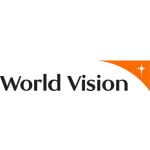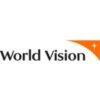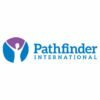Programme Technical Director, Humanitarian Operations at World Vision
Job Overview

Programme Technical Director, Humanitarian Operations at World Vision
Programme Technical Director, Humanitarian Operations at World Vision
With over 70 years of experience, our focus is on helping the most vulnerable children overcome poverty and experience fullness of life. We help children of all backgrounds, even in the most dangerous places, inspired by our Christian faith.
Come join our 34,000+ staff working in nearly 100 countries and share the joy of transforming vulnerable children’s life stories!
Key Responsibilities:
JOB PURPOSE
The Program Director’s primary role (50%) is deployment to humanitarian emergencies to lead the Programming team which consists of Programme Officer(s), MEAL (Monitoring, Evaluation, Accountability & Learning) and Information Management (IM). In responses, the Programme Manager serves on the Senior Leadership Team and leads the design of the response strategy and operations plan with the Response Director as well as the functions reporting to his/her position.
Outside of responses, this position will support the Global Program in Emergency capacity building, roster management and other key programme strategic initiatives including resourcing.
KEY RESPONSIBILITES
50% Deploy, either remotely or in-person, and lead the programming function in humanitarian emergencies to achieve the following:
- Establish, resource and staff the programmes unit which consists of programming, MEAL and IM functions Facilitate programme planning process to ensure alignment with context, humanitarian needs, response strategy as well as operational feasibility and technical quality Donor liaison and advocacy is undertaken to resource operations plan Support Finance in the allocation and tracking of response funding to ensure response priorities are funded Develop and submit project proposals to donors to resource operations plan (in collaboration with relevant team members) Support Finance to establish grant management system to ensure fulfilment of donor requirements Plan, implement, analyse and share findings from assessments and program monitoring Ensure critical MEAL functions including assessments, monitoring, learning, evaluations and humanitarian accountability as well as information management are undertaken
- Ensure all data from assessments, baseline, monitoring, feedback mechanisms is communicated to communities as appropriate and continuous improvement processes are in place for programme adaptation
End Results
- Programmes structure, staffing plan and team budget meets the needs of the response. Hiring, training and providing staff management.
- Working with the global surge capacity unit and P&C, surge deployments meet the immediate needs of the response
- Collaboration with the rest of the DM GC Strategy, Effectiveness and Digital
- Capabilities Team (MEAL, IM and digital units) to support staffing and the effective work of each function of the unit to standard
- Handover amongst deployed staff on team and in transition to the National Office is conducted.
- Programme targets the most vulnerable, based on an understanding of needs, each context, and respecting the principles of do not harm
- Response strategy developed with Response Director that reflects local needs as well as DM global strategy
- Operational intent plan aligned with funding opportunities/ allocations, operations and technical quality
- All EMS (Emergency Management System) functions provide input into programme design
- Response strategy and programme design refers to NO strategy and capacity
- Effective bi-lateral and multi-lateral donor representation and coordination with GAM on acquisition
- Collaboration with advocacy and SOs to influence and understand donor funding strategies and donor priorities
- Mapped response funding sources (with Finance)
- Funding allocation process (private non-sponsorship and grant opportunities) reflects response strategic priorities, operational realities and compliance with relevant funding regulations (with Finance, Ops, RD)
- With finance, donor funding allocation and commitments are made in line with the response strategy
- Proposals and project design are aligned with operational plan, DADDs, standards, DME requirements (needs assessments) and the Core Humanitarian Standard
Regular communication with donors and SOs to facilitate acquisition - Funding matrix is up to date
- Funding opportunities and sources regularly mapped with Finance and SOs through effective tracking systems
- Grant orientation and start-up workshops conducted with Finance for relevant staff
- Reporting is undertaken per donor requirements
- Grants are monitored to ensure compliance with donor requirements
- Rapid assessment undertaken in a timely manner and findings are incorporated into programme design/response strategy.
- Ongoing assessments with sectors and other functions as well as inter-agency assessments are supported
- Baseline assessments are undertaken for larger scale emergencies
- Needs identified through assessments, monitoring data and community feedback are communicated to in-country donors and Support Offices
- A programme monitoring system in line with programme and project requirements including the Indicator Tracking Table (ITT)
- A community feedback mechanism which informs programme/project adaptation, improvement and remedying beneficiary complaints
- A programme baseline assessing key programme indicators for later evaluation
- Grant evaluations undertaken as required and stored in an accessible manner for later review; and a programme-wide evaluation conducted
- A Real Time Learning (RTE) review is conducted with the DM GC MEAL team during the first phase of the response to inform the revision of the response strategy
- A digital information management system (such as LMMS) is in place to track beneficiaries, activities, and visualize data for response use and for reporting
- Key data collected from community members is fed back to them
- Key data from monitoring and feedback mechanisms is regularly communicated to response management and staff for action when necessary
- Action plans that address RTE, evaluation, monitoring and feedback data are developed and acted upon
30% Plan & Coordinate global programming in emergency (G-PiE) capability building effort including the management of G-PiE roster
End Results
- With the support of other Program Team member, coordinate and plan G-PiE training
- Maintain and plan for G-PiE roster engagement together with Program Director and the Team
(With the other programmes staff) Update and make accessible template response programming resource documents and mentor field staff on how to use them.
20% Lead key programme strategy initiatives including but not limited to contributing to revision of DM tools, strategy and support resource acquisition for GC DM - Lead on designated strategic initiative/s on behalf of Programmes
- With other stakeholders and the Program Team, position with strategic donors and support proposal development
- Serve as a bridge between the global DM strategy and response strategy, making key priorities field practice
KNOWLEDGE, SKILL AND EXPERIENCE
Required Education, training, license, registration, and/or Certification
- A minimum of 5 years in leadership role in the humanitarian assistance and/or development sector, with a significant portion of this in INGOs
8 years’ experience in humanitarian assistance work including significant field presence - Demonstrated understanding of key humanitarian principles, standards and best practices.
- Experience in program management and implementation of multi-sectoral emergency response projects Strong background in programme quality – MEAL – and information management
- Strong experience in working with bi-lateral and multi-lateral donors, grant management and proposal development
- Intensive experience in leading a multi-cultural team of professionals
- Experience working in a cross-cultural environment
- Experience working in war zones / fragile contexts
- Experience in engaging with governmental institutions and multilateral agencies
- Experience in managing humanitarian operations/ programmes’ teams that facilitate innovation and calculated risk taking.
- Work experience as Snr. Program Officer or Programme Manager at least for 1-3 years in a country other than the home country
Required Professional Experience
- University degree in Humanitarian Studies or relevant field. Master’s degree preferred
- Understand Humanitarian Industry and have proven experience within a relief/ Disaster Management setting
- Effective in written and verbal communication in English
- Ability to express ideas and concepts clearly and persuasively with senior internal and external stakeholders
Required Language(s)
Effective in written and verbal communication in English. French, Spanish, Arabic or other languages preferred.
Required travel and/or work environment accommodations
The position requires ability and willingness to travel and deploy domestically and internationally up to 50% of the time, often at short-notice.
Position’s physical requirements
Candidate will need to be fit for traveling and can endure at time sub-optimal living environment.
Applicant Types Accepted:
Local Applicants Only
How to Apply:
To submit your application, please follow the link provided below.





